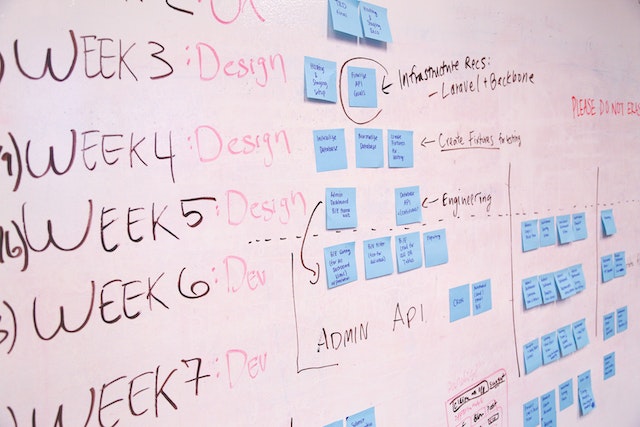
Picture from Pexels
Sometimes a project is just not meant to take as long as it would normally, or maybe you need something in a hurry. Regardless of why there are many ways that you can be able to cut down the time frame on your project and make it more efficient. This is done by recognizing the problems with your current project and where you can drop things to make it go faster. With a quick look at the project, you could figure out where you are not as efficient as possible and where there is needless time being put into the project that can be used on other things. Here we shall discuss some tips and tricks to cut down the time frame on your project.
1. Reduce the Work Load
This is very easy to do with smaller projects. If you have to do something that takes a lot of time, it is always best to break it down into smaller sections that all relate to one another. Doing this will allow you to make all the small tasks in rapid succession, leaving more time for other things in your life and possibly even letting you fit in a quick vacation before returning home from your trip. This may seem obvious, but many people go for the daunting task and forget about making a schedule. It is always better to break the project into smaller parts, so you can plan for yourself and get a clearer idea of what needs to be done.
2. Which Projects are Taking Up the Most Time?
It would be best to recognize where it is wasted to make the most of your time. Often, people forget that they need to check how long they have been working on specific projects and how much time is left over after the completion of each project. Maybe a certain project has taken up more time than you expected, and you are now running short on time for the other projects. It is always better to be on top of these things to ensure that everything goes smoothly and nothing gets left out.
3. Use a Project Management Software
This is also very important because there are multiple different types of projects that need different kinds of software. Some come with their unique features, while others only have a few features or even none at all. There are many different things that you should look for when choosing software for your project management purposes. Make sure that even if you are on a small budget, you should be able to find at least something that can fit your needs. A construction erp software can help you keep track of your project’s progress, make it easy to find things, and even help you find out where the money is being spent. This will help you plan your next project better than the last one.
4. Understand the Critical Path
The critical path is the most important part of any project, where you can find where all of the time is being used. It will allow you to cut down on time wasted by people or things that are not necessary, and in turn, the entire project should go more smoothly. You can easily identify this by looking at your project schedule and determining which deadlines are critical for the operation. If these deadlines are being met, then everything else should also fall into place. Even though the project is more expensive, it will be faster, and you can get it done sooner rather than later.
5. Be Aware of the Necessary Resources
Resources are always a problem. Even though there is a lot of research and checking out the different areas where your resources can come from, it never hurts to ensure they are completed on time. Many overlook these things, but when they do, it usually makes their entire project fall behind and leaves them unprepared for many different situations. You should always be on top of all of the resources, and you should make sure that you meet all of their deadlines as well. This will save time, so it is best to keep this in mind when prioritizing projects properly.
The best way to cut down on time is to plan out your project and make sure that you know what needs to be done, when it needs to be done, and who will do it. It is essential to think about what you are doing and plan to do as much as possible in a short period. Ensure to cut things down that are unimportant and do not add any value to the end product. This will allow you to complete your project on time and with as few headaches as possible.


